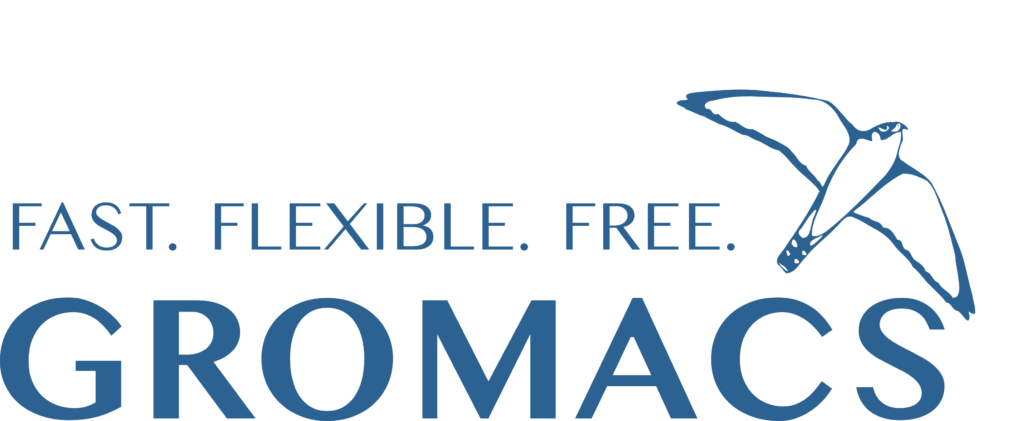The recent GROMACS advanced workshop was enthusiastically attended by 30 participants from Sweden, Finland, and even around the world. We were flooded with registrations to attend, and have been working hard to make the material available online outside of workshops. The first job has been getting GROMACS up to date on bioconda! At the workshop, Drs Mark Abraham, Christian Blau, Alessandra Villa, and Artem Zhmurov ran workshops on topics as diverse as REMD, AWH, umbrella sampling, and GPU performance. Thanks go to CSC in Finland for providing all participants with access to the Puhti supercomputer for the latter topic!
You can already find the materials for that workshop at https://enccs.github.io/gromacs-gpu-performance/, and perhaps follow along on your own GPU cluster! Happy simulating 🙂

ENCCS is working hard on porting GROMACS to run on the AMD GPUs that will be found on LUMI in Finland and Dardel in Sweden. There are two strings to our bow at the moment, and we are choosing carefully what will give users the best performance now and the best capabilities in the long term because maintenance and extensibility are better.
AMD has shared their port of the CUDA support in GROMACS 2020.3 to run with HIP. That works well in our hands, and we are running benchmarks to see how well it performs, as the long-standing OpenCL support in GROMACS will also run on the same GPUs. We expect HIP to be a bit better, and also to support a wider range of simulation flavors because it is based on the CUDA support that runs more code on the GPU than the OpenCL support. We would prefer not to duplicate all the CUDA code in HIP, don’t want to convert all the CUDA code to HIP permanently, and are currently assessing whether AMD’s source-to-source translation tool will work well enough for us to convert the code just before compilation. Time will tell!
Intel is supporting Andrey Alekseenko in the GROMACS team to add support for SYCL in GROMACS, including both DPCPP and hipSYCL. The team is also keen to explore the performance with hipSYCL on AMD GPUs, because the SYCL platform offers a path to support multiple vendors’ devices in a single code path. Doing so will greatly reduce the burden on the developer team, and provide better outcomes for users in the long term.
Stay tuned for further updates!
For more information on GROMACS visit http://www.gromacs.org.
RECENT NEWS
[post_grid id=’651′]







